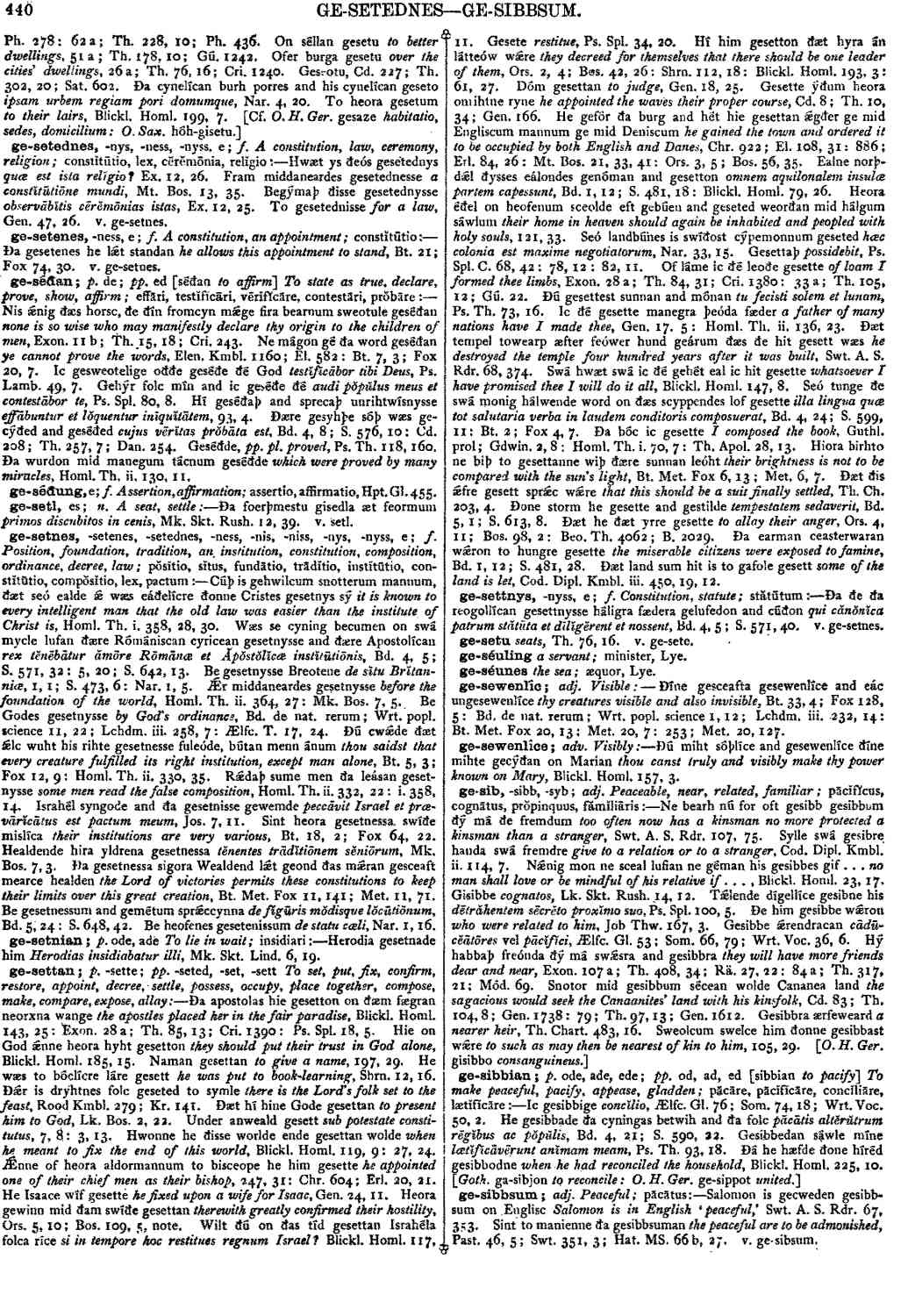ge-sib
- adjective
-
Ne bearh nú for oft gesibb gesibbum ðý má ðe fremdum
too often now has a kinsman no more protected a kinsman than a stranger,
- Swt. A. S. Rdr. 107, 75.
-
Sylle swá gesibre handa swá fremdre
give to a relation or to a stranger,
- Cod. Dipl. Kmbl. ii. 114, 7.
-
Nǽnig mon ne sceal lufian ne géman his gesibbes gif ...
no man shall love or be mindful of his relative if ...,
- Blickl. Homl. 23, 17.
-
Gisibbe
cognatos,
- Lk. Skt. Rush. 14, 12.
-
Tǽlende dígellíce gesibne his
dētrăhentem sēcrēto proxĭmo suo,
- Ps. Spl. 100, 5.
-
Ðe him gesibbe wǽron
who were related to him,
Job- Thw. 167, 3.
-
Gesibbe ǽrendracan cādūcĕātōres vel
pācĭfĭci,
- Ælfc. Gl. 53; Som. 66, 79; Wrt. Voc. 36, 6.
-
Hý habbaþ freónda ðý má swǽsra and gesibbra
they will have more friends dear and near,
- Exon. 107 a; Th. 408, 34; Rä. 27, 22: 84 a; Th. 317, 21; Mód. 69.
-
Snotor mid gesibbum sécean wolde Cananea land
the sagacious would seek the Canaanites' land with his kinsfolk,
- Cd. 83; Th. 104, 8; Gen. 1738: 79; Th. 97, 13; Gen. 1612.
-
Gesibbra ærfeweard
a nearer heir,
- Th. Chart. 483, 16.
-
Sweolcum swelce him ðonne gesibbast wǽre
to such as may then be nearest of kin to him,
- 105, 29.
Bosworth, Joseph. “ge-sib.” In An Anglo-Saxon Dictionary Online, edited by Thomas Northcote Toller, Christ Sean, and Ondřej Tichy. Prague: Faculty of Arts, Charles University, 2014. https://bosworthtoller.com/15992.
Checked: 0